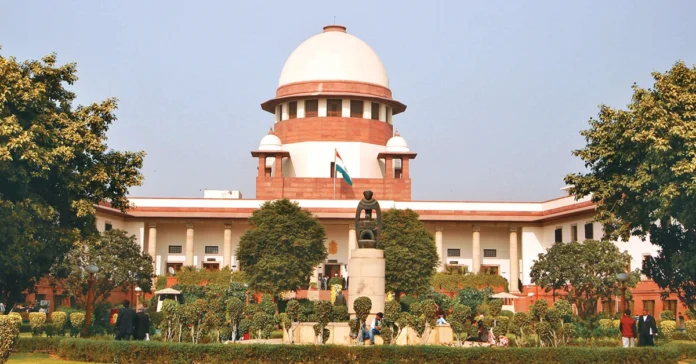The Supreme Court has sentenced a man to life imprisonment for repeatedly raping his 10-year-old daughter.
The Bench of Justice Aravind Kumar and Justice Sandeep Mehta pulled up the petitioner for arguing that he had been falsely implicated because he had disapproved of his daughters’ romantic alliances.
Terming the claim as completely ‘hollow,’ the top court of the country observed on August 4 that no daughter, however aggrieved, would fabricate charges of this magnitude against her own father merely to escape household discipline.
The offence ‘subverted’ the very notion of family as a space of security, said the Court and directed the State to pay Rs 10.5 lakh as compensation to the survivor.
The Bench upheld the orders passed by both the trial court and the High Court, convicting the man under Section 6 of the Protection of Children from Sexual Offences Act (POCSO) and Section 506 of the Indian Penal Code (IPC).
Both the trial court and the High Court had rightly relied on the testimony of the child, her sister, and forensic & medical evidence to return a finding of guilt. The assaults were not isolated but sustained over time, taking place within the safety of the home, which should have been a sanctuary, it added.
The Apex Court further observed that the victim’s testimony was unwavering, medically corroborated, and free from embellishment. Her disclosure, though delayed, was truthful and borne out of perennial trauma and threats she had undergone. The presumption of guilt under Section 29 of the POCSO Act had remained unrebutted, it added.
Condemning the offence in the strongest terms, the Bench said the father turning into abuser constituted an institutional betrayal. To entertain a plea for leniency in a case of this nature would not merely be misplaced, it would constitute a betrayal of the Court’s own constitutional duty to protect the vulnerable. When a child was forced to suffer at the hands of her own father, the law must speak in a resolute and uncompromising voice, it added.
The top court of the country further noted that justice must go beyond conviction and punishment, and must include reparation and the reaffirmation of dignity. It invoked Article 142 of the Constitution to grant enhanced compensation to the survivor.


